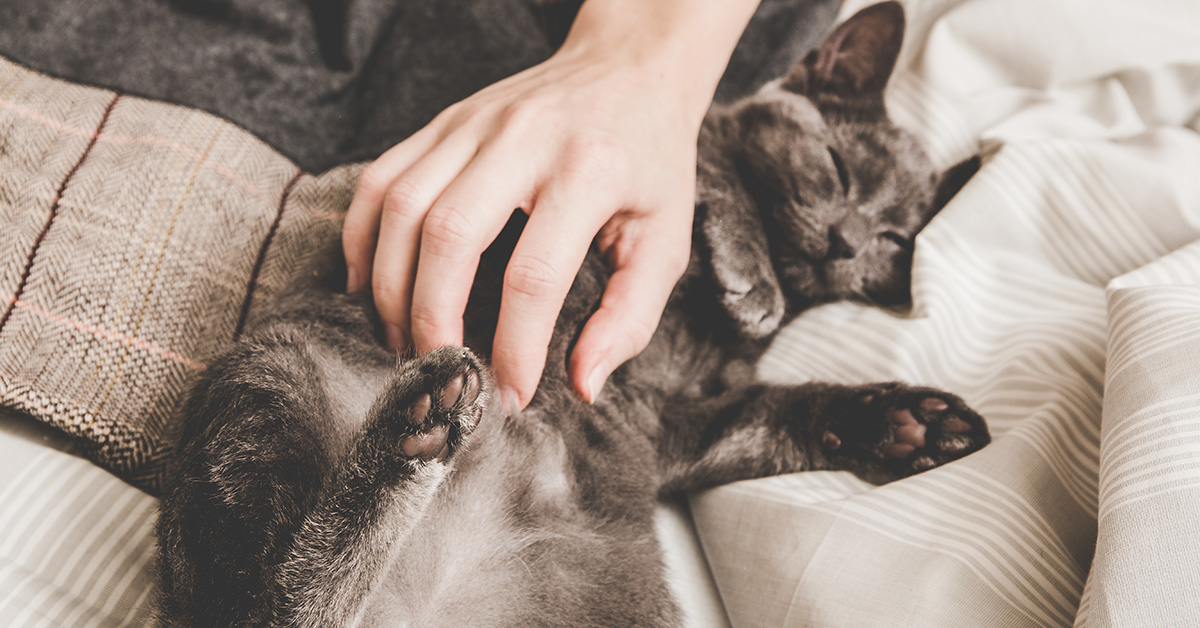The Benefits of Allowing Pets in Your Rental Property
Pets or No Pets - A Landlords Guide
If you own a rental property, one of your key objectives is undoubtedly to find and retain good tenants. With a growing supply of houses and apartments across Australia’s capital cities, the rental landscape can be extremely competitive. No longer is it enough to attract good tenants, it is equally important that landlords and agents are doing everything they can to retain good tenants after the lease is signed. Keeping hold of renters who pay their rent on time, look after your property and require limited management from you or your agent are worth keeping hold of. But how do you do this?
Have you considered allowing pets in your rental property? Australia has one of the highest rates of pet ownership in the world with about 63% of Australian households owning pets according to the RSPCA and many of these pet owners are renters. The majority of landlords are reluctant to allow pets, therefore if you are prepared to, you will likely gain a competitive advantage.
Pet friendly rentals are highly coveted and will attract many more tenants into your tenant pool. A larger tenant pool means faster letting and lower vacancies, plus due to the rarity of pet friendly properties, research indicates that tenants are willing to pay between 7-14% more if they can bring their pets. Pet friendly properties are hard to find and in many cases pet owners will sign longer leases which will ensure you have reliable long term rental income, stable tenants, reduced vacancy rates and reduced advertising costs for re-letting your property.
What type of pets should you allow?
Determine what type of pet is appropriate for every rental property you own. If you only have a small courtyard, then a cat might have to be the limit. If there is a large garden but no fence, a dog might be an issue. As a landlord you retain complete control over what animals are allowed to live at your property.
Consider the amount of carpet in the property - tiles and wooden floors are obviously better for animals as they don't retain odour, but they may be scratched by claws. If the property comes furnished check whether pet loved furniture such as couches can be easily damaged.
It is important also to think of neighbours living in close quarters and whether the introduction of an animal may disturb their peace and quiet.
Ensure tenants sign a pet policy
It's a good idea to document a pet agreement for both you and your tenant to sign.
This agreement may request that all pets are to be individually sighted and approved by the landlord / or property manager prior to entering the property and include details such as the type and number of pets allowed.
It is worth including specific guidelines you would like your tenants to follow. For example, you may request that the pet is not allowed inside the premises, that it cannot enter certain areas of the home, such as carpeted bedrooms and for the tenant to ensure the property is free from animal smells, pet waste and pet hairs.
If your property is part of a strata or community title it is essential you check the corporation’s by-laws in regards to whether pets are allowed before you agree to let them in. Many corporations prohibit pets or have very specific requirements about the type of pet which may be considered.
Thoroughly check references
Your LJ Hooker Property Manager will always do a thorough check of potential tenants’ references during the screening process, but it is essential that they specifically ask previous landlords or property managers whether there were any issues with the applicant’s pets in the past and whether there was damage to the property as a result of the pets.
Get an insurance policy that covers pet damage
Of course pets can cause damage and as the landlord you will surely be concerned about this. Most landlord insurance policies don’t cover pet damage so make sure you do your research and find a policy that covers damage caused by pets. Some insurers require pets to be named and described on lease agreements in order to cover pet damage – so make sure you check this out. It is also worth ensuring the insurance policy has generous limits – that way you’ll be reassured your investment will be protected by your insurer.
DISCLAIMER - The information provided is for guidance and informational purposes only and does not replace independent business, legal and financial advice which we strongly recommend. Whilst the information is considered true and correct at the date of publication, changes in circumstances after the time of publication may impact the accuracy of the information provided. LJ Hooker will not accept responsibility or liability for any reliance on the blog information, including but not limited to, the accuracy, currency or completeness of any information or links.
Share



